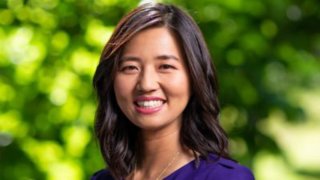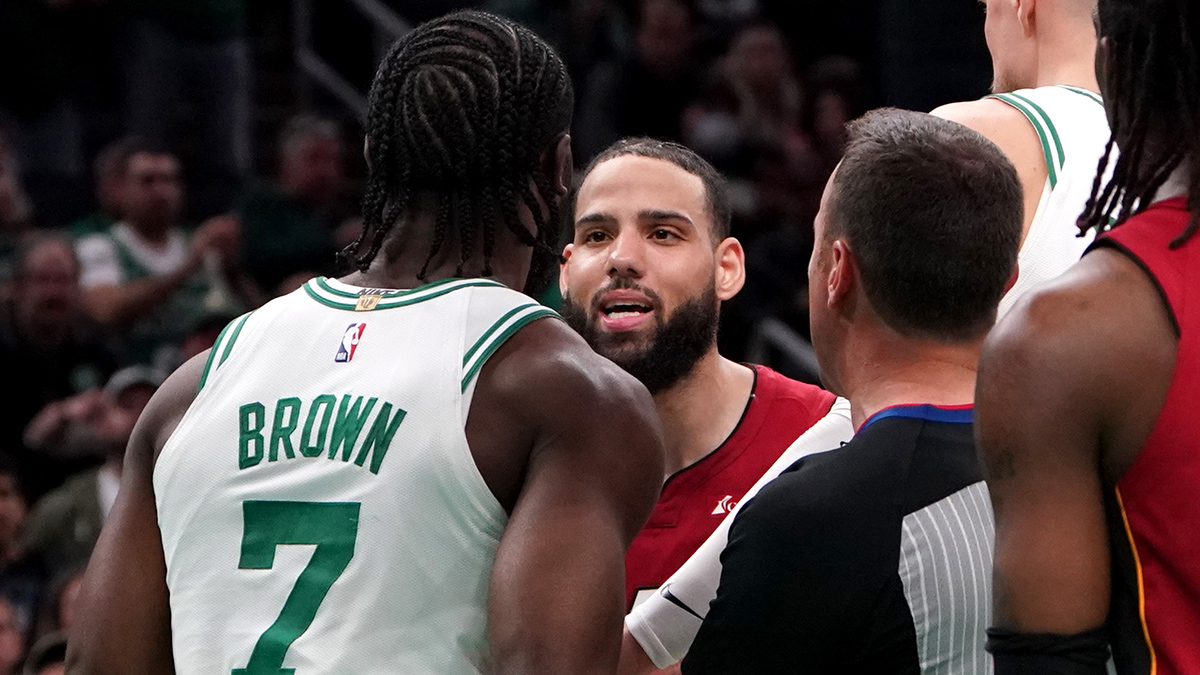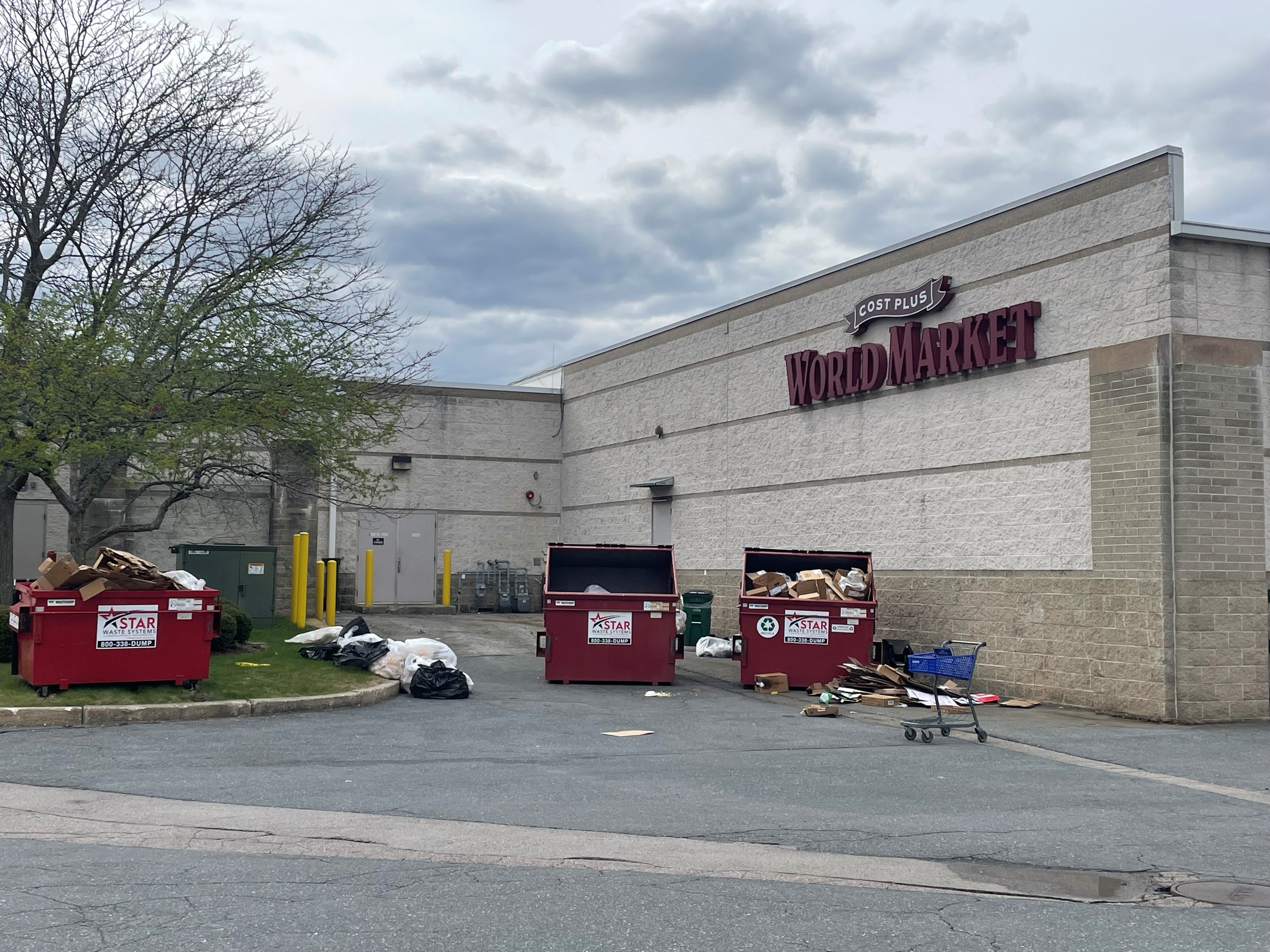
In the latest installment of "10 Questions with NBC10 Boston," we spoke to Boston City Councilor at-Large Michelle Wu, who has been very vocal about defunding the Boston Police Department, one focus of protests in the wake of the death of George Floyd.
The Harvard alumna, who was the first woman of color to serve as president of the council, explained the value of having diversity at all levels of government after talking about Boston's response to the coronavirus pandemic and the nationwide protests against police brutality.
This transcript has been lightly edited. Watch the full interview above.
In The Boston Globe, you recently opened up about mental health to help people to feel more comfortable talking about it. What inspired you to share your own personal journey?
It took me a long time to get to that point. My mom's mental health crisis came on about 12 to 13 years ago at this point, and my sisters were still younger and in school at that point and it kind of turned all of our lives upside down, and yet as much as we had to change everything we were doing — I left my job and where I was living to move back in with my family and figure out how to stabilize everything — I still wasn't telling a whole lot of people about it. There was a sense of shame and, "Did we do something wrong?" to be in the situation. Every time we'd be at a hospital or even with certain mental health providers, it was kind of reinforced that, as a woman of color, and my mom was also a woman of color and immigrant, it didn't feel like people were seeing her as a full person sometimes. I think that spilled over onto us too. It's taken a while for me to get to the place where I feel like we need to just own all of ourselves and our lives and, in doing so, hopefully, empower other people to be able to speak up and at least feel like they're not alone, and that they're seen and valued and treasured in our society.
We've seen a lot of young people leading the charge when it comes to the protests over the last few weeks in light of George Floyd's death. What kind of change do you think will come from people exercising their right to protest?
Local
In-depth news coverage of the Greater Boston Area.
If you look back over the course of history in our country, it's clear. Every major advancement, when it comes to protections and rights and freedoms and liberty, always had young people at the front right. We know what the right side of history is here, we know what direction we had to move in. It's sad that it came to this, that it came to people taking the personal risk of coming together in huge crowds — during a pandemic, right? — the very thing we're not supposed to do, because it's just outrageous where we are right now: all the black lives that had been lost to COVID-19 that clearly had not been protected, how disproportionate the impact [was] when our health care system was going through crisis. Then on top of that, when everything else was stopped, when planes were stopped and the economy was stopped, what kept going was state-sanctioned killing of black men and women, too. I think people are speaking up because of that. We are now at the point where it's beyond time to figure out how we get rid of the real underlying virus in our country, which is racism.
You've been very vocal about defunding the police departments. How do you envision a future with defunded police departments?
First of all, there's ... a range of opinions of what folks actually mean and I think some of us maybe aren't quite all the way there, in terms of, like, full abolition of police and law enforcement and all that ... all the way up to we're reallocating resources. No matter where you are on that range, I think what everyone agrees on is that we are not investing enough in communities. It's a question of how do we want to prioritize the limited resources and the public dollars that we have. The first place that it should go probably shouldn't be to try and to solve problems with the end, after people have already been hurt, after when bringing in that kind of background also introduces a whole bunch of risks, particularly to communities of color, particularly to black residents. It's more about how do we set up the investments in what we want to see from the beginning in public health, in housing stability, in food access and mental health, in transit access. There's a whole bunch of things where we just want to see a better representation of how we actually solve the underlying issues.
I saw you submitted a 17F order, which is supposed to hold the city accountable for its military-grade weapons, but especially the way that they've been using it against protesters. Why do you think that bill so important to police reform?
Yeah, and thanks for bringing that up because I think this is one of the tools that the City Council has that nobody really knows about. Everybody's like, "what does that even mean?" It's basically the equivalent of an internal subpoena between branches of government. The city charter gives councilors the power to put forth what's called a 17F order, which requires the mayor and his administration to respond to questions or information that we're asking for within seven days. If the council as a whole votes to pass that order on, the clock kind of starts ticking as soon as the administration receives that; they have seven days to respond. A number of colleagues actually submitted different requests. One of the ones, as you mentioned, was from me to figure out what are we talking about specifically in terms of the militarization of the Boston police.
Boston is part of this national conversation. We know that our public safety structures haven't been keeping everyone safe, particularly Black Americans. We know that our criminal justice system actually makes injustices worse for communities of color. To break out of that system though, we need to know, kind of line by line, what are we talking about? It's not just the weapons and the vehicles but tactics and training — what do we do? How are we encouraging our officers to interact with the community in a militarized way and how has that all played out in the last in the last decade or so? Have there been "no-knock" warrants that have been issued and enforced and what are the demographics of the community members who were part of that? What have we spent as taxpayers on either acquiring that equipment or on on executing all that stuff? Once we figure out how much we paid to get what we have, then I think it's a natural next conversation of, "Okay, well what should we actually not have?" and therefore, maybe even save some money to invest in community.
Last week, Mayor Walsh declared racism as a public health crisis. He decided to transfer $3 million to the Public Health Commission to show that they're trying to enact change a little bit, but also we have a report today that said black people accounted for 70% of Boston police stops in the last three years. What do you think this administration could do to enact some sustainable change?
I want to give a huge shout out here to my colleague on the council, Ricardo Arroyo, because he — this is his first time on the council, but the very first speech that he gave from the council floor was asking the city to declare racism a public health crisis and take steps to address that. His idea was to have an office that's specifically focused on analyzing every policy, every program from the lens of racial equity, so that we know when we're making decisions that we're actually closing gaps and solving the problem as opposed to maybe inadvertently making things worse. He had done that back in March, way before the pandemic even started. It's been nice to see his advocacy lifted up and the solution that he lifted up then needs to be part of this current conversation too.
For me, I think it's, again, going back to what are root causes of where we are now? Boston is one of the most unequal cities in the country, but we're doing great in a lot of ways, if you look at the economy as a whole and averaging across everything. But just under the surface is our city's history, struggling with racism, right, in a very public way that I would say hasn't been addressed fully. The legacy of what that meant for our school system and our housing, and the 30+ year difference in life expectancy and the huge gaps in median net worth across black families and white families in our city. We know what the problems are, we even know how to solve them. It all comes down to building up the will and making the choice to do it. That's one thing that's been really great in this pandemic, is seeing a whole bunch of issues that advocates have been pushing for years and years, and who had been told, "Oh, it's too expensive, not possible to feed everyone, to give everyone a laptop in Boston Public Schools." Now we're doing it because we finally chose to address the problem.
You were the first woman of color to be the president of the Boston City Council. How have you seen the landscape of politics change in Boston now that more women are at the table?
It's been amazing actually, to see through Boston's example, how fast you can change dynamics. You mentioned that little barrier we broke down when I became council president in 2016, but it wasn't that long before that we had the first woman of color ever elected to the city council, right? When Ayanna Pressley got elected in 2009, it wasn't until then that we even'd had a woman of color serving on the Boston City Council. I remember when I was running for office in 2013, [Pressley] was the only woman serving on the 13-member council at all. Everyone kept telling me when I was running, "You'll never get elected. You seem great, but you're a woman of color, you weren't born here, you're too young." All these things that I couldn't change about myself, and all the questions that I got on the campaign trail were, "Where did you grow up? Where did you go to school? What neighborhood does your mom live in? Where do you fit into this identity and tribes to find whether you get to be part of the power structure or not?"
Fast forward to last year's city elections, in 2019, just six years after my first race, we elected the first ever majority people of color council, majority women on the council. All the questions during [the] campaign cycle were really different too. Nobody was asking, "What neighborhood do you live in and do you go to school?" It was, "What issues do you care about, what communities are you going to champion, what actions are you going to take?" I think that quick reinforcing of changing the political atmosphere with people who don't look like the usual structure of running, then bringing issues, then more people saying, "Hey, maybe it's possible for Boston to elect others, so I'm going to support this other activist who's coming out to run for office." Then more activists saying, "Hey, they've been successful. Why don't I think about doing this? I never saw myself in that role before." And it only took six years for us to go from one woman on the council to eight.
Joe Biden has committed to selecting a woman as his vice president but now people are calling on that seat to be filled by a person of color. From your perspective, what do you think is the best fit for the White House right now?
I was really active this last presidential campaign cycle as a former student of Sen. Elizabeth Warren's and I got my start working for her on her first Senate campaign. I'm cognizant of how important it is to get this done in November and I know we're not here to talk partisan politics but so much is at stake, at the federal level and how that affects state and local for this November, and the disaster that we will face if what we have now continues, it's just unimaginable. We all need to do whatever we can do to make sure that people come out to vote and truly exercise their rights this November. I think there's still a lot of questions about what that looks like during a pandemic and what the current status quo is gonna try to do to maybe tip the scales in their favor with this current pandemic. I will say, honestly, I was pretty disappointed towards the end of the Democratic nominating process when we saw a field that had included so many younger candidates of color vying to be president, candidates that were outside the mold and talking about the issues, and so I hope that we'll get there soon at the federal level as well. And you see some of this excitement that we've been experiencing in Boston, but it does make a difference for people to be at the table who represent communities who haven't had seats at that table before and people who can really bring in community with them.
Unfortunately, the pandemic hit communities of color the hardest. Do you think that the city of Boston is doing enough for those communities?
No, and it's frustrating to see, still, that we are having conversations from the frame of, "Oh okay, do we make a decision that's best for public health, or do we make a decision that's best for the economy?" … If we had testing, contact tracing, we would know how to open up 100% safely. If we had resources to give to any child care center or advocacy organization that needed personal protective equipment to open, then workers wouldn't feel like they're putting themselves at risk by going. If we had paid leave and protections for every worker, then individuals wouldn't be struggling with this choice of, "I don't feel so well but I know if I don't go in, I'm going to maybe lose my job or at least lose my pay, so I'm weighing whether I do the right thing for myself and my co-workers." These are just unfair and unnecessary decisions that government should be providing more of a solution and support for.
What do you think that kind of leadership looks like moving forward? How do you implement change?
It's about being intentional by defining the scope of the problem that we're trying to solve. Then, getting the public will and bringing people to the table to figure out the steps to get there. I think in the course of this pandemic, at the city level, we have been trying to supplement things that are happening. At the state and federal level we've created some of these relief funds that are meant to help renters or businesses or just support efforts recovery efforts in general. The ways of distributing the funds haven't necessarily helped close the gaps and bring about the equity that we know should be the focus right now. When you distribute money, either by a lottery or first come first serve and there's not enough support, relative to the need that's out there. Of course the people that are left out are the ones who most need help, because they weren't even connected enough to know that you could apply for this or to get their application in on time or didn't have access to the translated materials until later to the process so I think it's really about saying, "What are we trying to do?" If it is that we're trying to protect, support, save Black-owned businesses in Boston, what does that mean we need to do? How many are there? What would it take? And then how can we try to piece together a pathway to get there?
What is one thing you envision for the city of Boston before you retire from politics?
I hope that everyone feels connected to each other and to government. I think that's all it is. We're lucky in Boston that we have the resources to solve any problem that needs solving … I'm sure that we have more neighborhood associations and volunteer organizations per capita than anywhere in the country. People are growing their time into taking care of issues. It's just about getting everyone on the same page and feeling like, when they advocate, it makes a difference that they're heard, that it matters and then they can actually bring about change at the local level. I think we're starting to see that transformation at the council … for everyone to feel like, no matter what neighborhood they live in, what their first language was, that they have a role and they have power, relative to city government, to make a difference.



